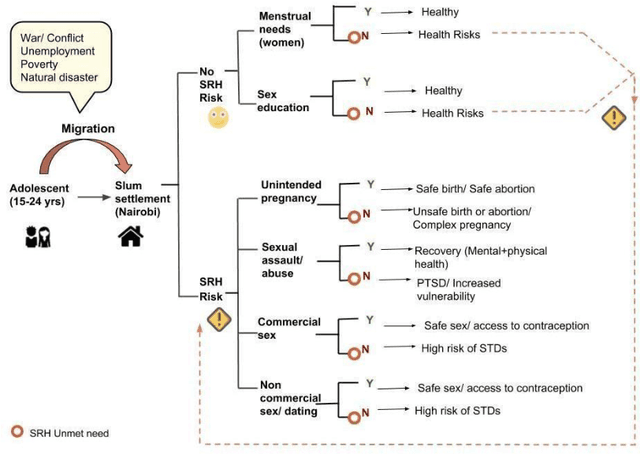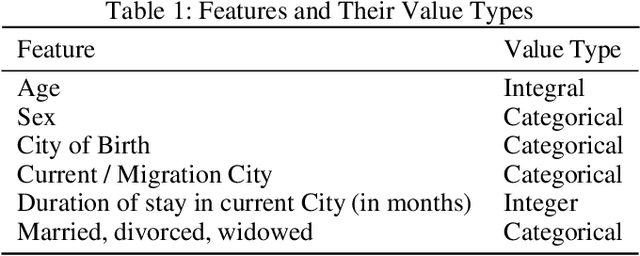Migration through Machine Learning Lens -- Predicting Sexual and Reproductive Health Vulnerability of Young Migrants
Paper and Code
Nov 15, 2019


In this paper, we have discussed initial findings and results of our experiment to predict sexual and reproductive health vulnerabilities of migrants in a data-constrained environment. Notwithstanding the limited research and data about migrants and migration cities, we propose a solution that simultaneously focuses on data gathering from migrants, augmenting awareness of the migrants to reduce mishaps, and setting up a mechanism to present insights to the key stakeholders in migration to act upon. We have designed a webapp for the stakeholders involved in migration: migrants, who would participate in data gathering process and can also use the app for getting to know safety and awareness tips based on analysis of the data received; public health workers, who would have an access to the database of migrants on the app; policy makers, who would have a greater understanding of the ground reality, and of the patterns of migration through machine-learned analysis. Finally, we have experimented with different machine learning models on an artificially curated dataset. We have shown, through experiments, how machine learning can assist in predicting the migrants at risk and can also help in identifying the critical factors that make migration dangerous for migrants. The results for identifying vulnerable migrants through machine learning algorithms are statistically significant at an alpha of 0.05.
 Add to Chrome
Add to Chrome Add to Firefox
Add to Firefox Add to Edge
Add to Edge